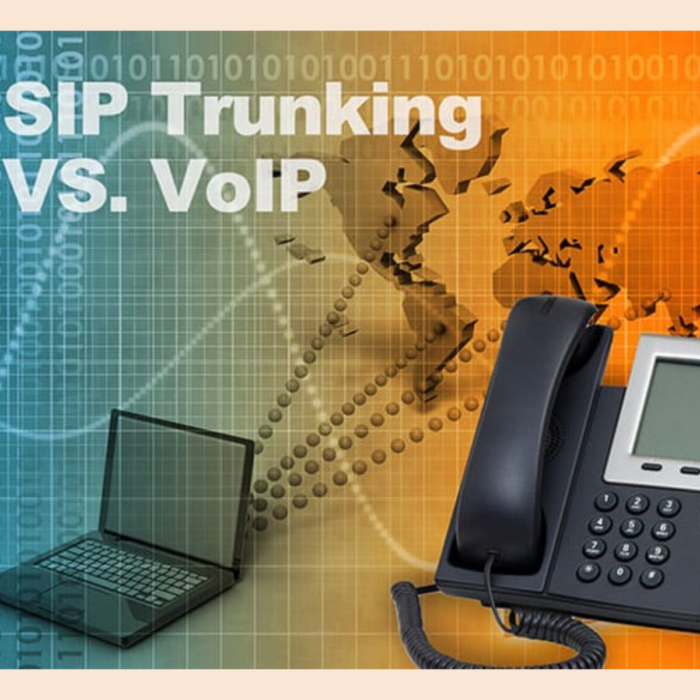Traditional phone systems are quickly being replaced by modern alternatives. One such solution gaining popularity is the VoIP phone system for business, which enables companies to make voice calls over the internet instead of using traditional phone lines. Whether you’re running a small business or managing a large corporation, switching to VoIP offers numerous advantages, including cost savings, scalability, and enhanced features.
However, the transition to a VoIP system requires careful planning to ensure minimal disruption to your business operations. Here are the key considerations when switching to a VoIP phone system for business.
1. Assess Your Internet Connection and Bandwidth
The backbone of any VoIP system is your internet connection. Unlike traditional phone systems, VoIP relies on the internet to transmit voice data, so the quality of your connection will directly impact the call quality. Before making the switch:
-
Evaluate your current internet speed and reliability.
-
Ensure sufficient bandwidth to support voice calls alongside other business operations.
-
Consider upgrading to a dedicated line or using Quality of Service (QoS) to prioritize voice traffic, ensuring high-quality calls.
For businesses with a VoIP phone system for small business, having a stable and reliable internet connection is even more important, as small businesses often have fewer resources to manage disruptions.
2. Selecting the Right VoIP Equipment
VoIP systems can be implemented using different hardware and software options. Depending on your business’s needs:
-
Choose IP phones that are compatible with SIP (Session Initiation Protocol), the communication protocol used for VoIP.
-
Consider softphones, which are software applications for making calls via your computer or mobile device, offering flexibility for remote teams.
-
Look for features such as HD voice quality, call forwarding, voicemail-to-email, and conferencing capabilities.
Small businesses in particular will benefit from office phone systems for small business that offer flexibility and scalability without requiring hefty upfront investments in traditional hardware.
3. Choosing the Right VoIP Provider
Selecting a reliable VoIP provider is critical to ensuring a smooth transition. Look for VoIP phone service providers for business that offer:
-
Reliable customer support to assist you with any issues.
-
Scalable solutions that allow your phone system to grow with your business.
-
Advanced features such as call analytics, voicemail transcription, and call recording.
When evaluating VoIP providers, make sure they offer the level of service and support your business needs. Having the right provider in place ensures you have access to the features and reliability necessary for smooth business operations.
4. Scalability and Flexibility
One of the biggest advantages of a VoIP system is its scalability. As your business grows, you can easily add new lines and features without needing to overhaul the system. Key considerations include:
-
The ability to add or remove lines with minimal cost and effort.
-
Support for remote work and mobile devices, ensuring your team stays connected even when working off-site.
-
Integration with other business tools, such as customer relationship management (CRM) software and helpdesk systems.
For small businesses, the scalability of a VoIP phone system for small business allows you to grow without worrying about expensive infrastructure changes as you add new employees or expand to new locations.
5. Cost Savings
One of the primary reasons businesses switch to VoIP is to reduce costs. Traditional landlines can be expensive, particularly for long-distance or international calls. VoIP systems help save on both setup and maintenance costs:
-
Lower per-minute calling rates.
-
Free or low-cost international calls.
-
No need for expensive PBX hardware or dedicated phone lines.
With SIP trunking, businesses can further reduce costs by paying only for the channels they use, making it a more economical solution for growing companies.
6. Disaster Recovery and Business Continuity
In the event of a network failure or disaster, your communication system must remain operational. VoIP systems offer built-in features to ensure business continuity, such as:
-
Call forwarding to mobile phones or backup numbers.
-
Geographic redundancy to reroute calls to alternate locations if needed.
-
Cloud-based solutions that allow you to access your phone system from anywhere.
Disaster recovery features are crucial for maintaining operations, especially for small businesses that rely heavily on continuous customer communication.
7. E911 and Regulatory Compliance
VoIP systems must comply with regulations like E911, which ensures that emergency services are available to your business in case of an emergency. Ensure that your provider offers:
-
E911 capability to route calls with accurate location information.
-
Number portability to retain your existing phone numbers during the transition.
These features are essential for businesses that must adhere to local regulations and prioritize employee and customer safety.
8. Custom Number Options for Branding
A unique, easy-to-remember phone number can enhance your business’s branding and marketing efforts. VoIP systems offer several number options, such as:
-
Toll-free numbers, which provide national reach and are free for customers to call.
-
Vanity numbers, which are memorable and help create a strong brand identity.
-
Local DIDs (Direct Inward Dialing), which allow businesses to establish a local presence in multiple cities without needing physical offices.
These number options are particularly valuable for businesses looking to expand their marketing reach while maintaining a professional image.
9. Security Considerations
As with any internet-based system, security is an important consideration when implementing VoIP. Protecting your voice data from fraud and cyber threats is crucial. Ensure your provider offers:
-
Encrypted SIP (SIPS) and Secure Real-Time Transport Protocol (SRTP) to safeguard your communications.
-
Fraud detection tools to monitor suspicious activity and prevent unauthorized access.
Security features are critical, especially for businesses handling sensitive information or dealing with high call volumes.
10. Training and Implementation
Transitioning to a VoIP system requires adequate planning and staff training. To ensure a smooth implementation:
-
Test the new system before fully deploying it across your team.
-
Provide training to employees on how to use the new system and its features.
-
Consider running your old phone system in parallel for a short period to minimize disruptions during the switchover.
Proper training and support will help employees quickly adapt to the new system and make the most out of its features.
Final Thoughts
Switching to a VoIP phone system for business can dramatically improve your communication efficiency, cost-effectiveness, and flexibility. By carefully considering these key factors—bandwidth, scalability, costs, and security—you can ensure a smooth transition that benefits your business in the long run.
With the right provider and setup, a VoIP phone system for small business can grow with your company and provide powerful features like call forwarding, voicemail-to-email, and custom phone numbers to strengthen your brand. Take the time to research your options, plan the implementation, and enjoy the advantages of a modern, cloud-based communication solution.








